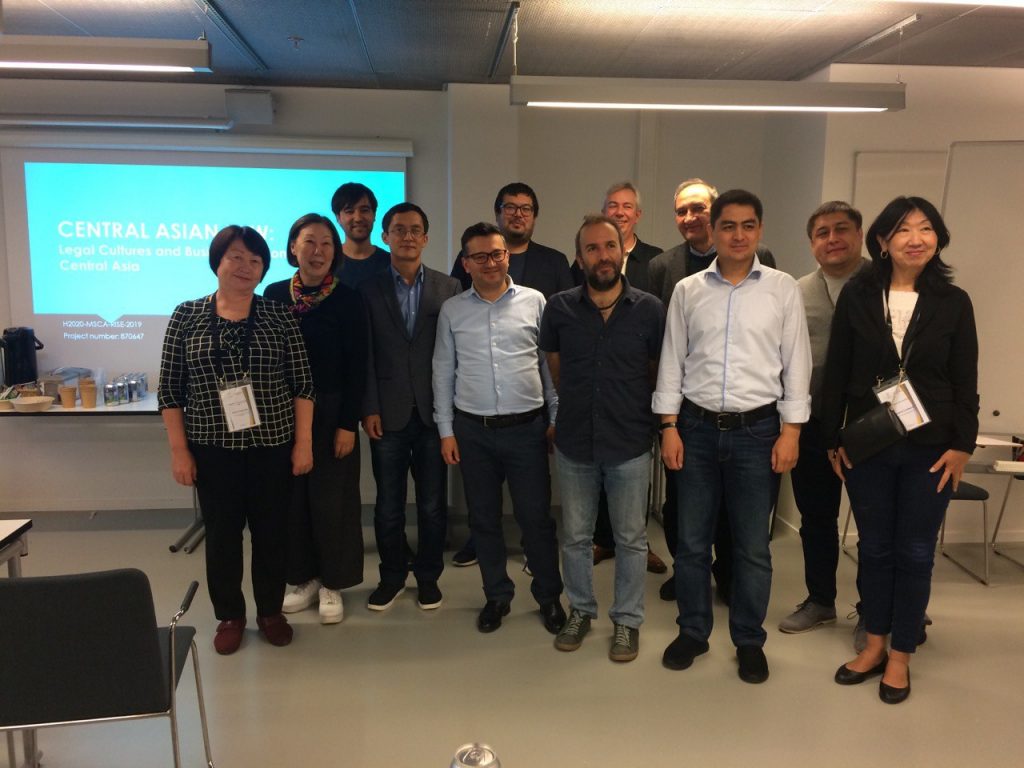The Central Asian Law project’s final conference was held on February 1-2, 2024
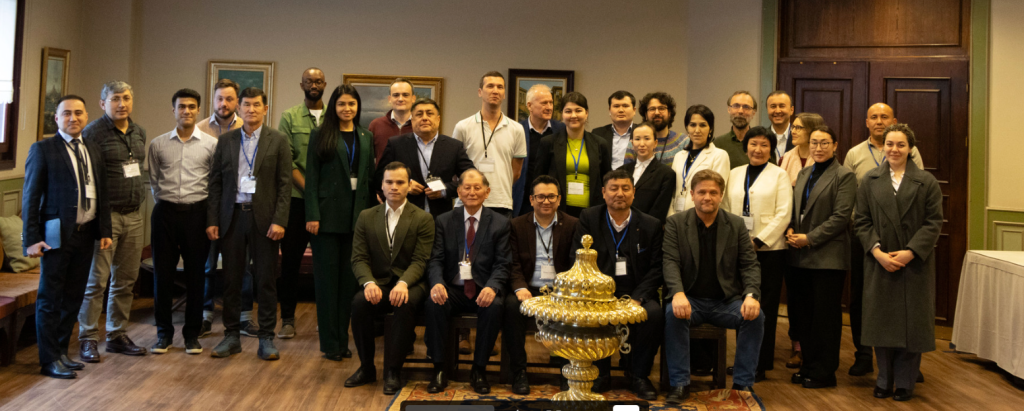
Istanbul, Turkey — February 1-2, 2024 — The concluding conference of the Central Asian Law (CAL) project convened researchers and scholars to discuss the multifaceted legal and business landscapes in Central Asia. Hosted online and in-person, the conference facilitated a comprehensive analysis of the political economy, domestic institutions, and business environments across the region.
The conference opened with a welcome and introduction by the co-hosts – Rustamjon Urinboyev of Lund University and Gökhan Malkoç of Istanbul Medipol University. Dilaver Khamzaev from the Academy of the General Prosecutor’s Office of Uzbekistan introduced his book, “COMPASS FOR INVESTORS: Legal Guidance on Foreign Direct Investment in Central Asian Countries,” providing essential insights for investors navigating the region. Rustamjon Urinboyev presented the edited volume “Political Economy of Central Asian Law: A Law and Society Analysis”. The edited volume comprised of the research articles by the project members and provides fresh and much-needed insights into the interconnections between law, society and governance in Central Asia.
The first session, “Political Economy of Central Asian Law: International Norms and Actors,” included diverse perspectives on the region’s legal culture and business environment. Tolibjon Mustafoev from Lund University examined the international anticorruption agenda in Uzbekistan. A collaborative work by Dildora Karimova from the Westminster International University in Tashkent and Uygun Nigmadjanov of the Academy of the General Prosecutor’s Office of Uzbekistan discussed the potential for corporate criminal liability for bribery in Uzbekistan. Hatice Deniz Genc, Istanbul Medipol University, analyzed the role of international organizations like UNODC in norm diffusion, and Dilaver Khamzaev explored regional initiatives in combating money laundering and terrorism financing.
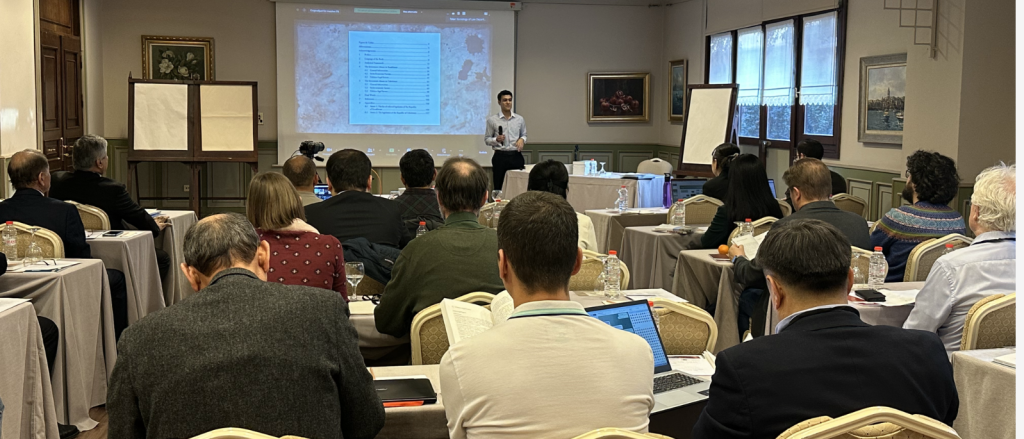
Keynote speeches by Jakipbek Altayev and Shavkat Atakhanov provided in-depth views on historical and contemporary legal and business practices in Central Asia. Prof. Altayev, an invited guest speaker from the Al-Farabi Kazakh National University, discussed the great philosopher Al-Farabi’s political and social views and their implications for modern governance. Shavkat Atakhanov presented his empirical research on the security strategies employed by ethnic minority entrepreneurs in Kyrgyzstan, focusing on the restaurant and café business examples run by Uzbek entrepreneurs in the south of Kyrgyzstan.
The afternoon session featured Khasan Sayfutdinov, Westminster International University in Tashkent, talking on fair and equitable treatment provisions for the investors with a focus on Uzbekistan. His colleague – Alisher Pulatov of the same University, also presented his research on the digital economy taxation. Muzaffar Dostqoriev and Nasimbek Azizov, both from the Academy of the General Prosecutor’s Office of Uzbekistan, talked about the legal culture in Uzbekistan through economic court disputes.
The second day began with presentations on the political economy of Central Asian law, focusing on the economy and business environment. Nazgul Baigabatova from Zhetysu University, discussed the historical and current realities of women’s business paths in Kazakhstan, while Ulugbek Abdurakhmanov examined the nexus between teleworking and economic development in Uzbekistan. The conference continued with a session on the anthropology of agricultural production and trade. Elmurod Sobirov presented a case study on legal informality and debt-based trade in Uzbekistan’s Ferghana Valley. A panel comprising of the team from the University of Zurich discussed the challenges and opportunities for rural entrepreneurs in Kazakhstan’s Zhetysu Region. Tolibjon Mustafoev analyzed legal the informality in agrarian management and clusters in Uzbekistan. The keynote speech by the Christopher Thornhill from the University of Birmingham highlighted the determinants of the legal reform in Uzbekistan.
The conference concluded with a final project progress report by Chekhros Kilichova, followed by an open discussion and project wrap-up.
Central Asian Law project’s first Mid-Term Meeting was held on the 4th of June 2021

Central Asian Law project is funded by the European Commission’s H2020 MSCA-RISE programme (project number 870647). Therefore, the project is subject to project reporting and annual mid-term meetings with the project adviser from the European Commission’s Research Executive Agency (REA). The project first mid-term meeting took place on the 4th of June. All project consortium members took part in the meeting. As a project coordinator, the project’s management staff at Lund University presented the progress made during the first year of the project. The presentation was divided into four parts, each based on the four work packages of the project.
- Work package 1 – project management;
- Work package 2 – research on Central Asian law and business environment;
- Work package 3 – training and capacity building;
- Work package 4 – dissemination of the research findings.
During the meeting, it was discussed how the project deliverables were affected by the COVID-19 pandemic and what measures are being taken to mitigate the further risks of delay.
A full-day meeting, held online, also included a session of the REA project adviser Ms. Desislava Kolarova with the researchers of the project. They shared with Ms Kolarova their research interests, progress so far and future plans.
At the end of the meeting, REA representative Ms Kolarova provided her feedback on the performance of the project. Moreover, Ms Kolarova provided some recommendations for the success of the project going forward, including on how to better disseminate the project findings and some administrative issues on the project management.


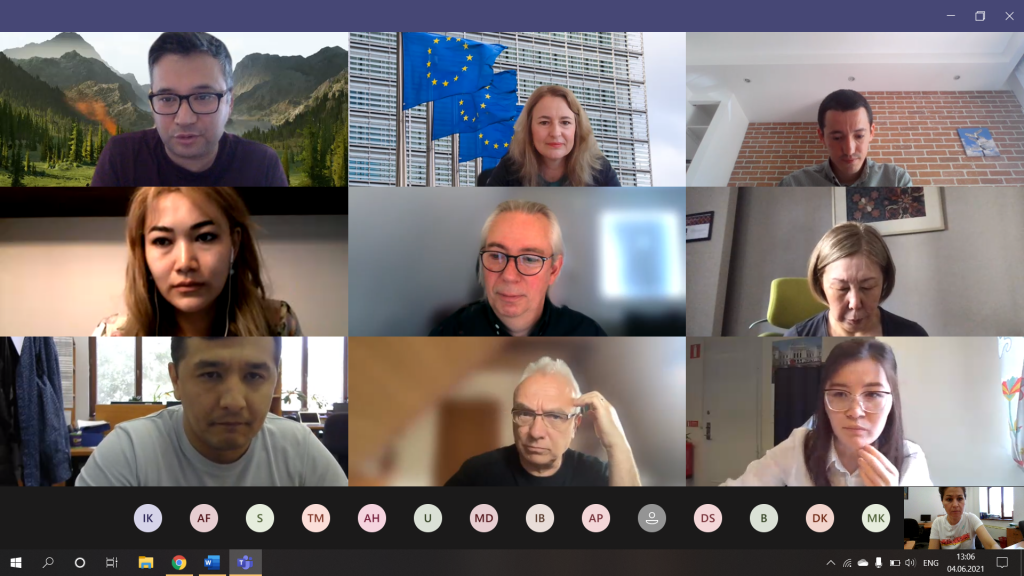
Presentation “Doing ethnographic fieldwork in non-Western contexts: Uzbekistan”

Central Asian Law project is continuing to organize capacity building and dissemination in order to communicate the project findings to different target audiences. On the 2nd of April, Central Asian Law project members held a presentation on the topic “Doing ethnographic fieldwork in non-Western contexts: Uzbekistan”.
The presentation was held at the initiative of Tolibjon Mustafoev, researcher of the Academy of the General Prosecutor’s Office of Uzbekistan. Tolibjon is also a visiting research fellow (seconded fellow) at Lund University within the framework of the Central Asian Law project, funded by the Marie Curie Research and Innovation Staff Exchange scheme within the H2020 Programme.
During the presentation, the project team talked about different methods of research, specifically focusing on the challenges and ethics of doing ethnographic research in non-Western contexts such as Uzbekistan. Visiting research fellow from Turkmenistan, Berdymyrat Ovezmyradov also talked about the importance of interdisciplinary approach to research and the difference between quantitative and qualitative methods in social sciences. The principal investigator of the project Rustamjon Urinboyev, shared practical insights from his fieldwork experience and talked about the hidden codes and norms of doing fieldwork in the post-Soviet societies.
The participants of the event were mostly young researchers and staff of the Academy of the Ministry of Internal Affairs of Uzbekistan, the Academy of the General Prosecutor’s Office of Uzbekistan, Tashkent State Law University and the Graduate School of Judges of Uzbekistan. It was a very lively event and participants asked many questions about the ethnographic research method and its ethical aspects. There were also suggestions to introduce ethnographic research methods as a new discipline at academic institutions of Uzbekistan.
Project workshop “Law and Society in Central Asia” 24-26 March, 2021

The workshop “Law and Society in Central Asia” was held on the 24-26th of March, 2021. The workshop, held online on the Zoom platform, was the wrap-up event of the first year of the project “Central Asian Law: legal cultures and business environments in Central Asia” funded by the Marie Curie Research and Innovation Staff Exchange scheme within the H2020 Programme (grant acronym: Central Asian Law, no 870647).
The first two days of the workshop were dedicated to the presentations by researchers on important topics in the development of law, society and economy of Central Asian countries. Among others, the presentations covered such topics as business and investment climate, corruption, digital law and governance, the role of women in business and economy and legal culture and systems in Central Asia. The presentations were grouped under 4 research streams – International actors, Domestic institutions, business actors as well as Informal institutions and norms. Participants listened to the presentations of their proposed research interests within the project and provided feedback to each other.
The third day of the workshop focused on project coordination activities, as well as conducting field work and data collection in Central Asian countries. All participants were divided into 4 groups of their corresponding research streams to coordinate their research interests and publications, as well as secondment plans. Based on these discussions, the project will now move forward to the next phase, where more secondments will be conducted in both European and Central Asian institutions, contributing to the exchange of knowledge and skills among researchers.
21st of March outdoors seminar at Lund University

21st of March is celebrated in many parts of the world, including in Central Asian countries. It marks the spring equinox, when the night and day are equal. In Central Asia, this holiday is celebrated with festivals, food, music and dancing.
For this occasion, the project team at Lund University invited guest researchers and staff of the Sociology of Law Department to an academic event on the 21st of March. The meeting comprised of a number of presentations from seconded researchers on their academic topics as well as a presentation about Navruz and its meaning for Central Asian nations.
Guests were welcomed by the Principal Investigator of the Central Asian Law project– Rustamjon Urinboyev at an informal gathering. Rustamjon talked about the progress of the project and upcoming activities. The event was held outdoors and followed social distancing and the COVID-19 guidelines.
Senior lecturer of the Sociology of Law Department – Patrik Olsson made a presentation on the topic “Law and Society in a comparative perspective”, where he talked about crime prevention and law enforcement, implications for understanding law and society and provided a comparative analysis of the law enforcement in Latin America and Central Asia.
Presentations from guest researchers included the following topics:
- “Inflows of foreign direct investments in Central Asian countries between 1991 and 2020” by Berdymyrat Ovezmyradov, visiting researcher from Turkmenistan;
- “Organizational and legal aspects of the introduction of innovative approaches to the execution of court decisions and documents of other bodies” by Azizbek Hamidov, visiting researcher from the Academy of the General Prosecutors Office of Uzbekistan;
- “Insights from the socio-legal research fieldwork in post-Soviet Uzbekistan during the pandemic: methodological considerations, ethics and challenges” by Tolibjon Mustafoyev, visiting researcher from the Academy of the General Prosecutors Office of Uzbekistan;
- “Uzbekistan in the Control of Corruption Indicator by World Bank: descriptive analyses of improving the position” by Muhammadbobur Abdullaev, visiting researcher from the Academy of the General Prosecutors Office of Uzbekistan.
The event ended with questions and answers about the presentations as well as discussions about Navruz festivities in Central Asia, their importance to culture and traditions of the nations of the region.
Central Asian Law Project Kickoff Meeting (Zoom-based), October 23, 2020
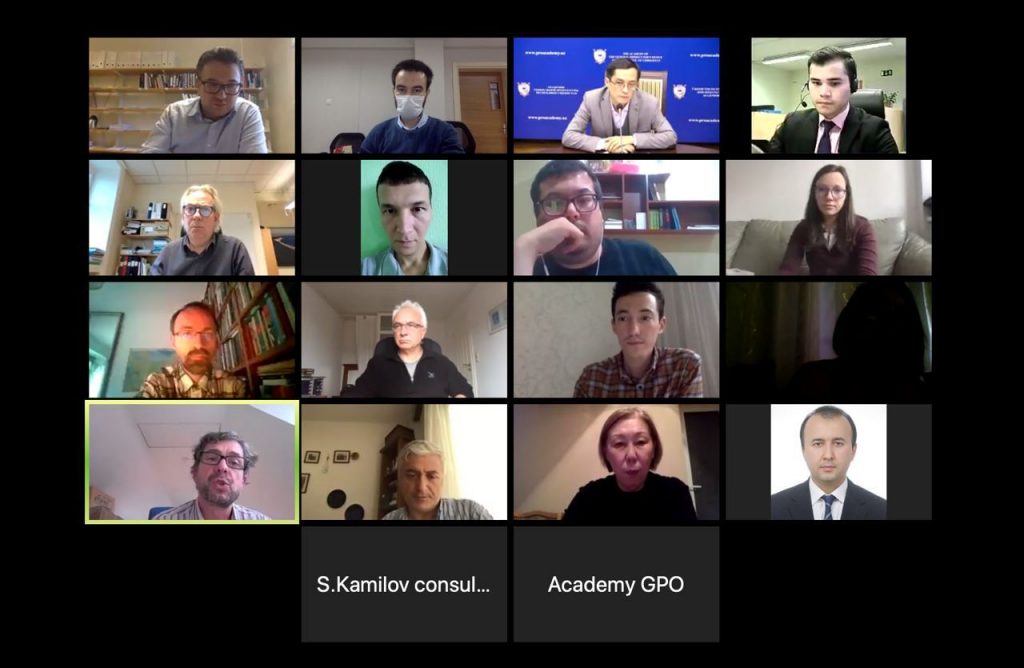
Culture and corruption in focus at the first Central Asian Law seminar at Lund University, Department of Sociology of Law, June 5, 2020
On June 5, the Sociology of Law Department at Lund University organised the first Central Asian Law project seminar. It featured four Central Asian guest researchers who presented work relating to cultural studies, cultural branding, and corruption. More detailed information about the seminar can be found here: https://www.soclaw.lu.se/en/article/culture-and-corruption-focus-first-central-asian-law-seminar?q=article/culture-and-corruption-in-focus-at-the-first-central-asian-law-seminar
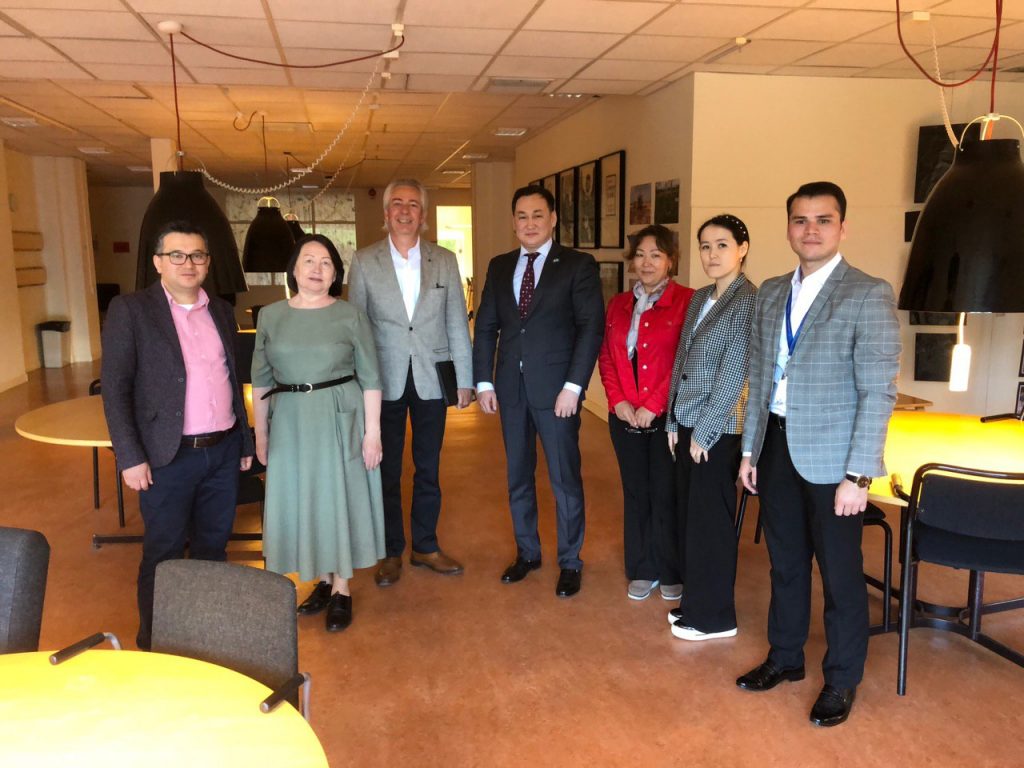
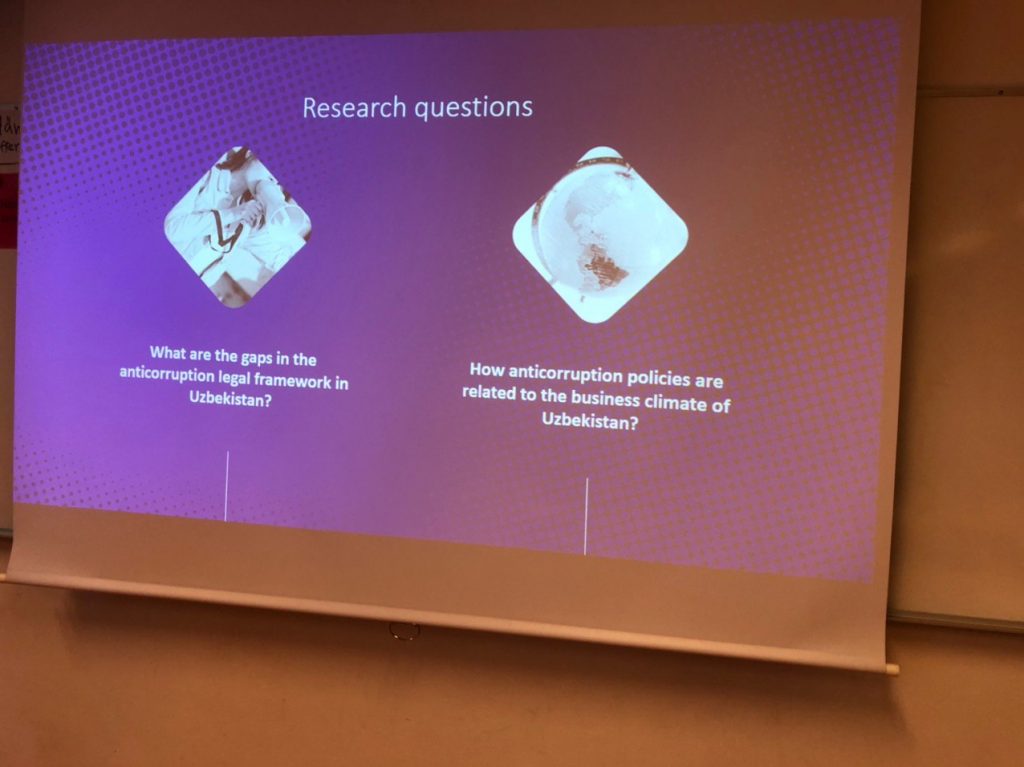
Central Asian Law: First Project Meeting at Lund University, September 19-20, 2019
